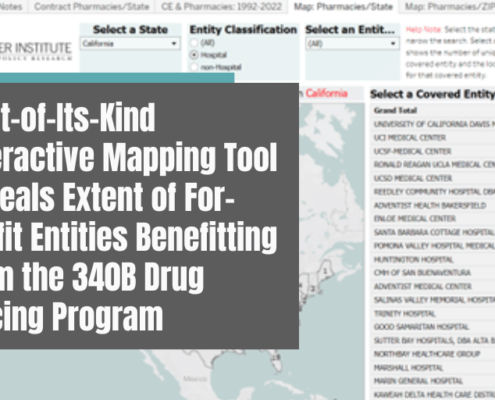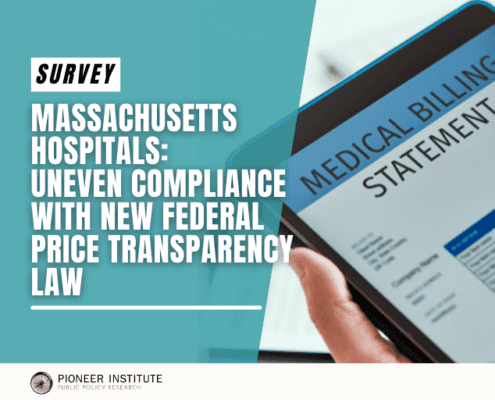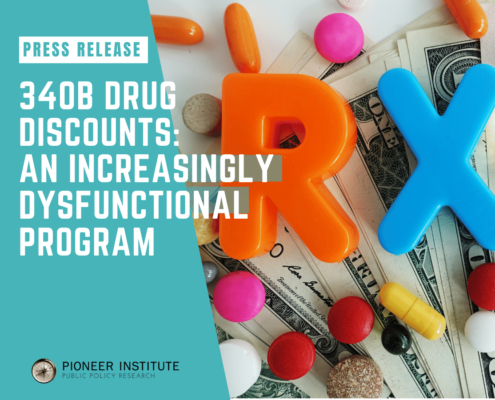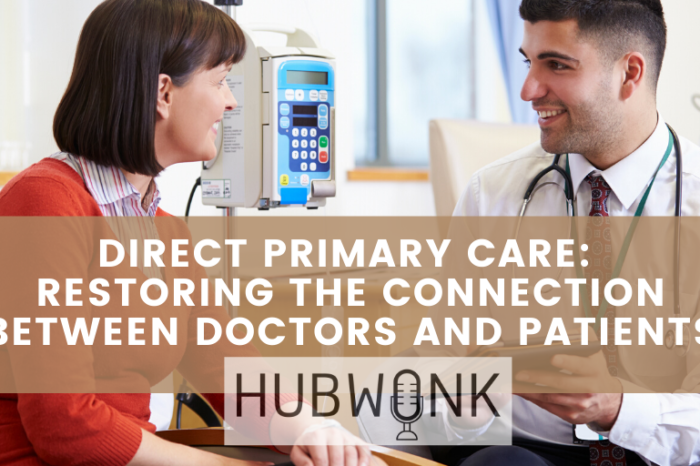Hubwonk Ep. 12: Direct Primary Care: Restoring the Connection between Doctors and Patients
/0 Comments/in Featured, Healthcare, Podcast Hubwonk /by Editorial Staff Share on Facebook
Share on Twitter
Share on
LinkedIn
+
Join Hubwonk Host Joe Selvaggi and Pioneer Institute’s Senior Fellow in Healthcare Josh Archambault as they discuss the benefits of direct primary care. In this episode, Dr. Jeffrey Gold shares his vision for the future of primary care and his passion for delivering care the way it was intended – through trust, openness, and investing in the doctor-patient relationship.
 Jeffrey S. Gold, MD, is owner and primary care physician at Gold Direct Care in Marblehead, Massachusetts. He earned his undergraduate degree at University of Pennsylvania and his medical degree at the University of Massachusetts Medical School. The primary care physicians in his practice serve over 600 patients.
Jeffrey S. Gold, MD, is owner and primary care physician at Gold Direct Care in Marblehead, Massachusetts. He earned his undergraduate degree at University of Pennsylvania and his medical degree at the University of Massachusetts Medical School. The primary care physicians in his practice serve over 600 patients.
Get new episodes of Hubwonk in your inbox!
Related Research:

Pioneer Institute Study Calls for Reforms to Ensure that Pharmacy Benefit Manager Practices Benefit Patients, Healthcare Payers
Congress likely to take up PBM reform early this year; Pioneer Institute Calls for PBM’s to be more transparent

Pioneer Institute: 340B Hospitals Does Not Necessarily Translate to Charity Care
Review of Becker’s List of Health Systems with Strong Finances…
New Online Tool Tracks MA Hospital Revenue from Commercial Sources
A new online tool from Pioneer Institute shows a gradual increase in non-commercial (public payer) revenue at Massachusetts hospitals and also reveals a strong relationship between the hospitals with the highest commercial revenue and those with the highest relative prices.

Telehealth Progress Slowed in 2023
A new report by Cicero Institute, Pioneer Institute, and Reason Foundation reveals worrying stagnation in state-level telehealth expansion efforts in 2023, with only a few exceptions. Progress made during the pandemic is being lost even as provider shortages worsen, raising concerns about patients’ access to care.

Opinion: Drug patents aren’t a ‘necessary evil.’ They save lives.
Drug patents are one of the most important public policy innovations in all of human history, and a boon to patients awaiting cures. Inventions only come when inventors are rewarded, not punished. Patents are not a “necessary evil.”

Study: High List Prices and Deep Discounts for Prescription Drugs Hurt Poor and Sick Patients
A new Pioneer Institute study illustrates how the current system of drug pricing and discounts leads to patients with challenging diseases being charged huge out-of-pocket sums to keep other premiums low, effectively imposing financial penalties on the sick to protect the healthy and wealthy.

Study: Massachusetts Should Join 45 States and Allow Prescribers to Dispense Medications
A Pioneer Institute study shows that middlemen—commercial pharmacies and pharmacy benefit managers—add substantial costs over wholesale prices. Allowing prescribers to dispense routine drugs would save consumers money without compromising safety.

As COVID-19 Emergencies Ease, Some Progress on Telehealth Rules
A new report from Reason Foundation, Cicero Institute and Pioneer Institute rates every state’s telehealth policy for patient access and ease of providing virtual care. The report highlights telehealth policy best practices for states.

First-of-Its-Kind Interactive Mapping Tool Reveals Extent of For-Profit Entities Benefitting from the 340B Drug Pricing Program
Today, Pioneer Institute released a first-of-its-kind, 50-state mapping tool and database highlighting the troubling way in which hospitals and covered entities leverage unlimited pharmacy contracts under the 340B Drug Pricing Program.

Survey Finds Spotty Compliance Among Hospitals with Federal Price Transparency Law
A 2019 federal law requires hospitals to make prices for 300 shoppable services available online in a “consumer-friendly format,” but a Pioneer Institute survey of 19 hospitals finds that information on discounted cash prices—the price most likely to be charged to consumers paying out of pocket—was unavailable at seven of those hospitals.

Massachusetts Hospitals Pull Back on Charity Care as Revenue from Federal 340B Drug Discount Program Explodes
Over the past decade, the revenue for hospitals generated by the federal 340B drug discount program, initially intended to serve low-income, uninsured populations, has exploded even while a number of important Massachusetts hospitals have reduced the level of charity care they provide, according to a new study published by Pioneer Institute. The Pioneer Institute study, “340B Drug Discounts: An Increasingly Dysfunctional Program,” notes that nationwide, 340B drug sales rose from $9 billion in 2014 to $38 billion in 2020.

The Promise and Challenges of Rare Cancer Treatments
Dr. William Smith, Pioneer Institute's Visiting Fellow in Life Sciences, spoke about the challenges and opportunities for rare cancer treatments, in a video interview produced by Rare Cancers, a patient group based in Australia, for the November 26th CAN Forum.



